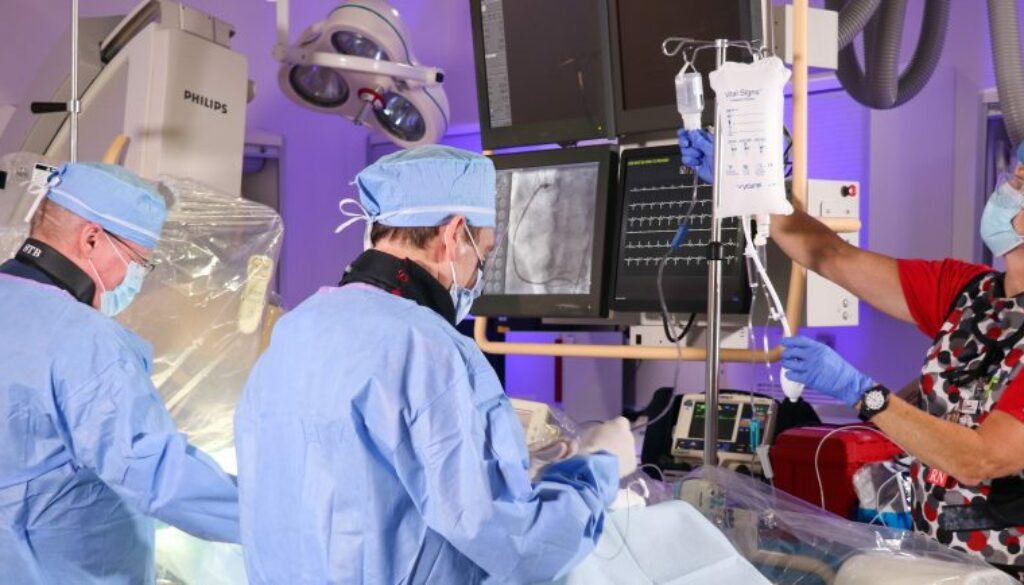Time means muscle at the CMC Cath Lab
When it comes to your heart, time is muscle. If a person is having a heart attack, it’s important to restore blood flow as quickly as possible. The sooner this is done, the more heart muscle you save and the healthier the patient will be.
The cardiac catheterization lab at Conway Medical Center puts time on a patient’s side. Our lab performs minimally invasive tests and procedures on-site to diagnose and treat heart disease. There is no need for patients to be transported elsewhere to receive these life-saving treatments, decreasing the time from diagnosis to restored blood flow.
Conway Medical Center and our board-certified interventional cardiologists at CMC Cardiac Care spend a significant amount of time working with their patients on prevention. However, when lifestyle changes and medicines aren’t enough or if a patient’s heart disease continues to progress, our cardiologists can perform non-surgical procedures in our cath lab to treat their conditions.
Cath lab treatments for Heart Care
The CMC Cath Lab provides emergency services 24 hours a day, 7 days a week as well as elective treatments for cardiovascular disease. Some of these specialized procedures are:
This test can locate blocked coronary arteries in people with symptoms of chest pain. We use a CT scanner to get 3D pictures of your heart and blood vessels while it is still pumping. This enables us to see blockages and any places where the arteries are narrowing.
Our Cath Lab features the latest in cardiac diagnostic imaging technology that allows our physicians to perform standard cardiac catheterization and radial artery catheterization. Cardiac catheterization is a minimally invasive procedure that involves threading a thin, flexible tube through the femoral artery in the groin to the heart. The radial artery approach is another option for catheterization that has some increased benefits and fewer complications.

This procedure used a balloon-tipped catheter to widen a narrowed or blocked artery often in the heart or leg. Often a stent is also placed to help keep the artery open. This procedure can be performed in people with or without symptoms of heart disease in an emergency or to treat a severe heart attack.
This involves the implantation of pacemakers and defibrillators. These devices help patients whose hearts do not beat as they should. Your heart has a rhythm. When there is an interruption or a problem with its beating it can lead to disastrous consequences. Implanting these devices can regulate the functions of the heart and help it pump more effectively.
Conway Medical Center’s State-of-the-Art Heart Care
Advanced medical technology provides the tools our team needs to make an accurate and timely diagnosis. Our board-certified experts will be in your corner, working to ensure your best cardiac health while offering the highest level of cardiac care throughout the Horry County region.




